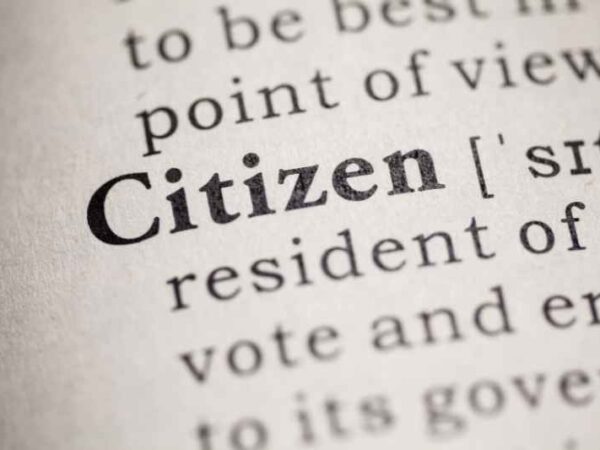ETIAS For Travelers with Multiple Citizenships
Dual citizenship applications have increased significantly over the last ten years, and that increase was most significant in the United Kingdom, where Brexit caused an initial 80% surge.
As the name suggests, dual citizenship gives you citizenship rights in two different countries. You have the liberties afforded to citizens in both of those countries and may also benefit from greater travel freedoms.
But how does the ETIAS fit into all of this, and what does the application process look like for someone with dual citizenship?
Do You Need an ETIAS If You Have Dual Citizenship?
Citizenship doesn’t automatically grant you a passport, and if you want to benefit from the travel freedoms afforded to dual citizens, you will need a passport from each of those nations.
Once you’re armed with that passport, your travel options will depend on your citizenships:
You Own At Least 1 EU Passport
If you have one EU passport and one non-EU passport, simply use the EU passport to travel. You do not need to apply for a visa or a visa waiver with the other passport, as you won’t be using it.
The ETIAS program applies to your passport and not your citizenship, so you can travel freely with your EU passport.
You Own Multiple Non-EU Passports
If you don’t have an EU passport for any of the countries in which you’re a citizen, you may need to apply for an ETIAS.
There are exceptions, though. The ETIAS program only exists for a fixed number of countries and if your country/countries are not on that list, you may need to apply for a visa, instead. All the countries below are currently eligible for an ETIAS visa waiver, which means that you can apply if you have a passport from one of the following nations:
- Albania
- Antigua and Barbuda
- Argentina
- Australia
- Bahamas
- Barbados
- Bosnia and Herzegovina
- Brazil
- Brunei
- Canada
- Chile
- Colombia
- Costa Rica
- Dominica
- El Salvador
- Georgia
- Grenada
- Guatemala
- Honduras
- Hong Kong
- Israel
- Japan
- Kiribati
- Macao
- Macedonia
- Malaysia
- Marshall Islands
- Mauritius
- Mexico
- Micronesia
- Moldova
- Montenegro
- New Zealand
- Nicaragua
- Palau
- Panama
- Paraguay
- Peru
- Saint Kitts and Nevis
- Saint Lucia
- Saint Vincent
- Samoa
- Serbia
- Seychelles
- Singapore
- Solomon Islands
- South Korea
- Taiwan
- Timor Leste
- Tonga
- Trinidad and Tobago
- Tuvalu
- Ukraine
- United Arab Emirates
- United Kingdom
- United States of America
- Uruguay
- Vanuatu
- Venezuela
You Have a Citizenship But Not a Passport
If you are a citizen of an EU member state but you don’t have a passport, you may still be able to travel. Most countries in the European Union allow EU citizens to travel freely with their official national ID cards.
However, this does not apply for countries outside of the European Union. In the United Kingdom, for example, it was possible for EU travelers to move freely using ID cards even after Brexit. However, this began to be phased out after October 2021.
Is It Worth Getting a Dual Citizenship?
If you are eligible for dual citizenship, it’s always worth the effort. It’s not something you should seek just for the sake of it, but if you live in a different country to where you were born, and you plan on staying there for many more years, citizenship can provide you with some security and peace of mind.
If you reside outside of the EU and have rights to EU citizenship, it will also greatly improve your travel freedoms, allowing you to skip the visa and/or visa waiver programs and use your EU passport for direct access.
The laws on multiple citizenships differ from country to country, so do your research in advance.
In Austria, for instance, you need to be a resident for at least 10 years and renounce all other citizenships before you can officially become an Austrian. In the Netherlands, it’s technically forbidden.
Conversely, it’s possible to apply for Italian citizenship by virtue of having Italian ancestors or an Italian spouse. You don’t need to renounce your citizenship and applying is usually quite straightforward.
In most cases, becoming a citizen will require you to either have direct connections to the country or to have lived there for a fixed number of years. You may also be required to complete a language competency assessment and to answer questions regarding the nation’s history, culture, and politics.
Do I Have To Live in a Country to Gain Citizenship?
There are a few ways to get citizenship. The exact process and requirements will depend on the country, but these citizenship types include:
- Birthplace: You were born in the country and can prove it.
- Ancestors: You have direct ancestors (parents, grandparents) from the country. Some nations will also grant citizenship options for older ancestors.
- Naturalization: You are a resident of the country and have been for a number of years.
- By Marriage: You are married to a citizen. In such cases, there may still be naturalization requirements.
- Golden Visa: You make an investment in the country, including property, bonds, or bank deposits.
What Are the Easiest Countries for Dual Citizenship in the EU?
It really depends on what you define as “easy”. Take Greece, for example. If you want to be a citizen of Greece, you must have lived there for 7 years and display a good knowledge of the language and culture. However, it also has one of the “cheapest” Golden Visas and requires a property investment of just €250,000.
Ireland has a one-year naturalization requirement (although you will also need to spend 4 years there following your application) and is often considered to be one of the easiest countries to acquire citizenship.




